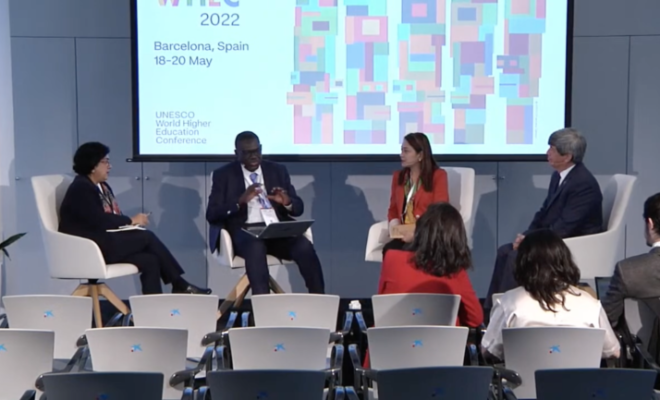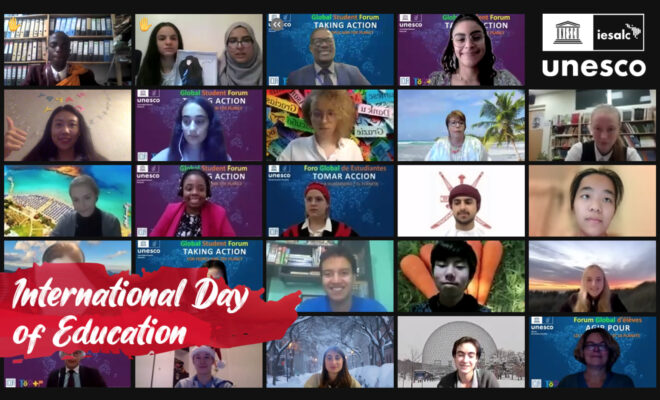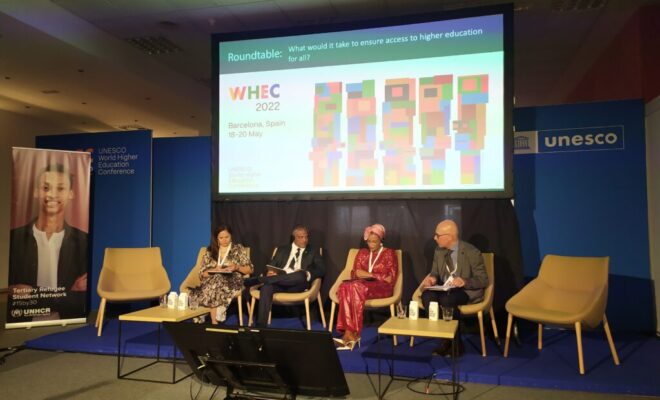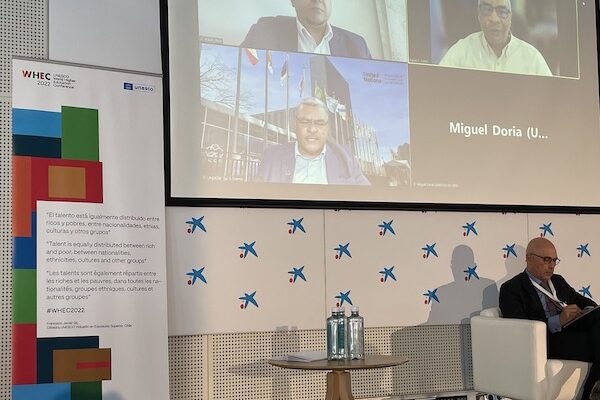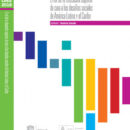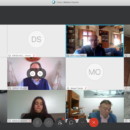Cycle Challenges of Inclusion in Higher Education: Webinar 1 “Educational Access Dimension”
Ideas from the speakers
–The current issue of inclusion… Leaving no one behind, Francesc Pedró, Director of UNESCO IESALC.
It is the first time in the history of international debates and promotion of education as a lever for social and economic development, that we find higher education as a Sustainable Development Goal – number 4 – of the 2030 Agenda. Within the same statement of education, reference is made to quality and equity and also, for the first time, reference is made to inclusion on an equal footing. We will try, throughout these conversations, to analyze something relevant: Not all equity policies are equally favorable to inclusion.
Presentation, Débora Ramos, academic specialist UNESCO IESALC
Higher education institutions play a fundamental role in the social, economic, environmental and technological development of our societies, in accordance with the Education 2030 Framework for Action.
–Conceptual Approach to Inclusion in Higher Education, Carmen Márquez Vázquez, Universidad Autónoma de Madrid, Spain
Inclusion is a process that is constantly being analyzed in order to respond to the needs of each of its members (faculty, students, research staff, workers…). Inclusion refers to equitable access but also to other aspects, such as student-centered learning, student participation and wellbeing, mobility and employability, and full success in personal development.
–Access policies to higher education in Argentina, Daniela Vanesa Perrotta, University of Buenos Aires, Argentina
In Argentina, affirmative policies have been developed for minorities; however, the disadvantaged sectors that enter public universities are the ones that suffer the most from student dropout. Higher education must be inclusive, of quality, embrace sustainable development and the concept of democratization.
–Access to higher education for Afro-Peruvians, Carlos Martín Benavides, Pontifical Catholic University of Peru.
In Peru, 3 out of every 10 students who finish high school go on to some form of higher education, which is 15% lower than in the rest of the region. It is important to increase the public offer of universities and institutes of higher education in the country for Afro-Peruvians, in order to increase their participation in tertiary education.
–Indigenous students in universities in southwestern Colombia, Sandra Liliana Londoño Calero, Pontificia Universidad Javeriana de Cali, Colombia.
How to make a pertinent higher education that leads indigenous communities to find what they are looking for? They learn in a different way and this must be taken into consideration. The Colombian government is creating a space for dialogue with indigenous communities to generate proposals that benefit both sides, as well as bridges between the needs of conventional and indigenous universities.
–Students with disabilities in Latin America, Marcela Méndez, Latin American and Caribbean Inter-University Network on Disability and Human Rights.
85 million people with disabilities live in Latin America and the Caribbean, representing 14.7% of the regional population, according to a 2020 World Bank report. It is a great opportunity to plan another university, where people with disabilities are included as well as other marginalized populations (indigenous populations, immigrants, rural people…).
–Indigenous peoples and their inclusion in higher education, Rita Gomes do Nascimento, Coordinator of the Program on Education and Ethnic-Racial Diversity, FLACSO, Brazil.
In Brazil, indigenous people want to have access to all levels and modalities of formal higher education. It is not a matter to be discussed, it is a human right and we want to guarantee it. Higher education is strategic for social projects, it contributes to the management and sustainability of territories, to the autonomy of indigenous populations and to having quality of life by guaranteeing decent living conditions.
Special intervention: Experience of university access and transition programs in Chile Maribel Mora Curriao, Director of the Office of Equity and Inclusion of the University of Chile.
Higher Education access programs should prioritize not only university access but also permanence and successful graduation. It is necessary to build policies with social relevance
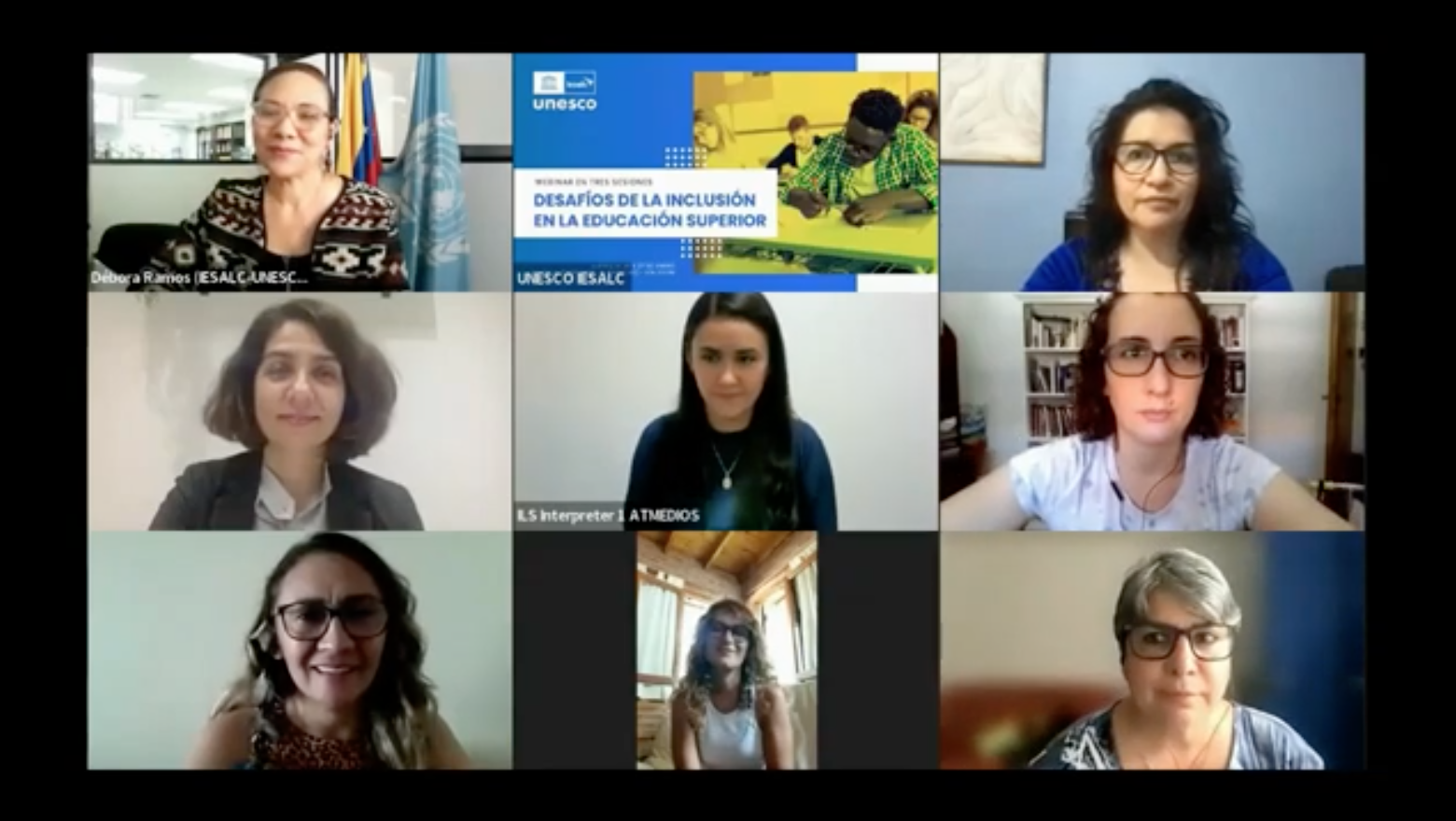
Presentations (only available in Spanish)
–Conceptual Approach to Inclusion in Higher Education, Carmen Márquez Vázquez, Universidad Autónoma de Madrid, Spain
–Indigenous students in universities in southwestern Colombia, Sandra Liliana Londoño Calero, Pontificia Universidad Javeriana de Cali, Colombia.
RELATED ITEMS
